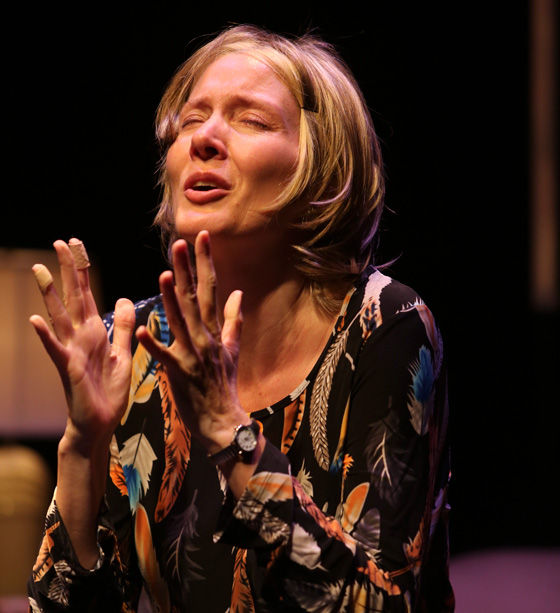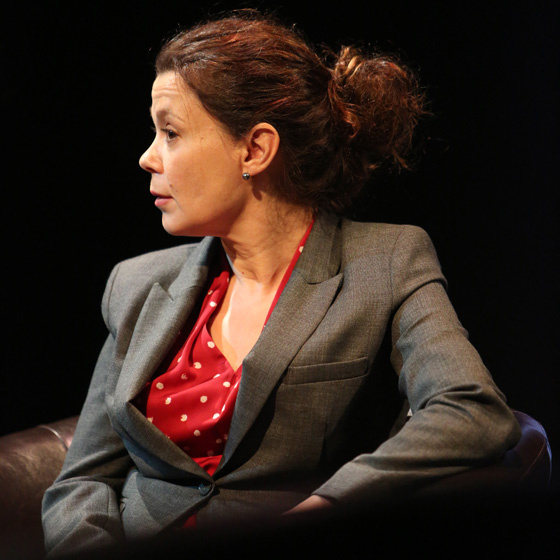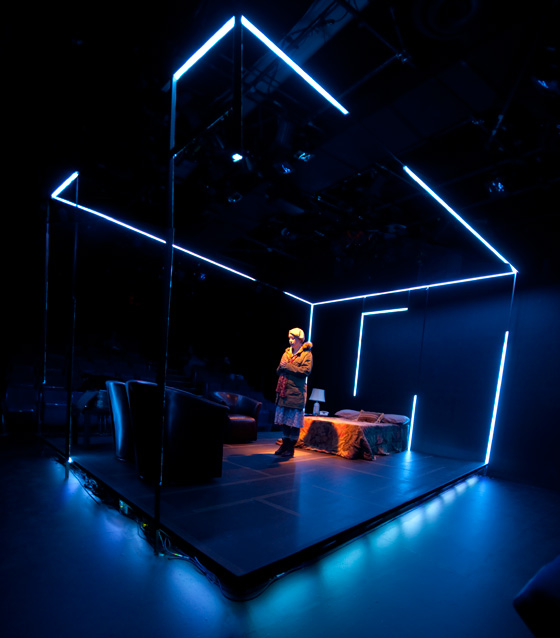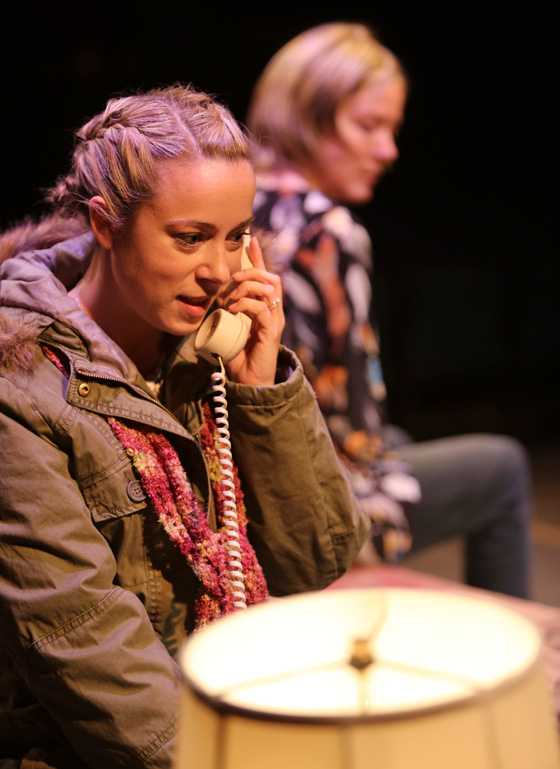As Daniel MacIvor’s Communion opens, the audience is quickly introduced to Leda (in a strong performance by Diane Brown), an agitated character (and recovering alcoholic) whose therapy sessions with Carolyn (Kerry Sandomirsky) are seemingly going nowhere. Her big beef with the world is having to spend her entire life waiting.
She’s trying to establish a connection between waiting and an effect – any effect – to give her life meaning as well as to take the edge off both her terminal illness (cancer) and her estranged daughter, Anne (Marcie Nestman).
We also learn of Leda’s recurring dream: a door, and what might possibly be behind it. Her imagination is pretty vivid, and once she gets going, it’s a verbal tornado of emotions, humour, and frustration. Deep down, she misses her Annie, former drug addict/convict-turned-Jesus freak, now known as Anne.
She longs for the good ol’ days when Annie actually cared about the world and stood up for her beliefs. The one-act, 90-minute play is comprised of three scenes: Leda/Carolyn, Leda/Annie, and Anne/Carolyn.
The play’s title refers to the peaceful, holy change in people once they’ve taken communion. As Leda checks in with Anne in the second scene, there’s been a big change in her daughter’s life: marriage and pregnancy. Leda too needs to break the news of her cancer to Anne, and the powerful moments that follow the mutual sharing of news is what finally reunites them. That, and their mutual distaste for Annie’s stepmother, Stephanie.
Anne at first tries to convert her mom into the holy way of life, but Leda’s not buying it. She’s not angry at God, since she doesn’t believe in him. Luckily for both Leda and the audience, Anne finally gives up her religious pitch and into the third scene, we’re greeted with death and further change, this time involving the therapist.
Anne eventually locates Carolyn’s office, and is looking for answers. Pleading with the therapist, Anne begins to take on some of her mom’s anxiety-ridden behaviour, creating another whirlwind of frustration and emotional outpour.
All three scenes are well executed and flow in a fine, logical order. The problem that I (and my theatre-going friend) had with the play is the fact that it didn’t hold any pivotal, terribly interesting moments for either of us. We’d have liked to have seen more of Carolyn’s character develop, as she obviously had a story to tell.
We would both recommend Communion for its fine acting and humourous moments (a well-received Ledaism: “Are you wearing a sarcasm filter today?”).
Communion, a guest production by Ruby Slippers Theatre, continues through November 9 at the Pacific Theatre. All three actresses appear with permission of the Canadian Actors Equity Association.
All photos by Tim Matheson.






















